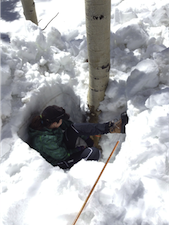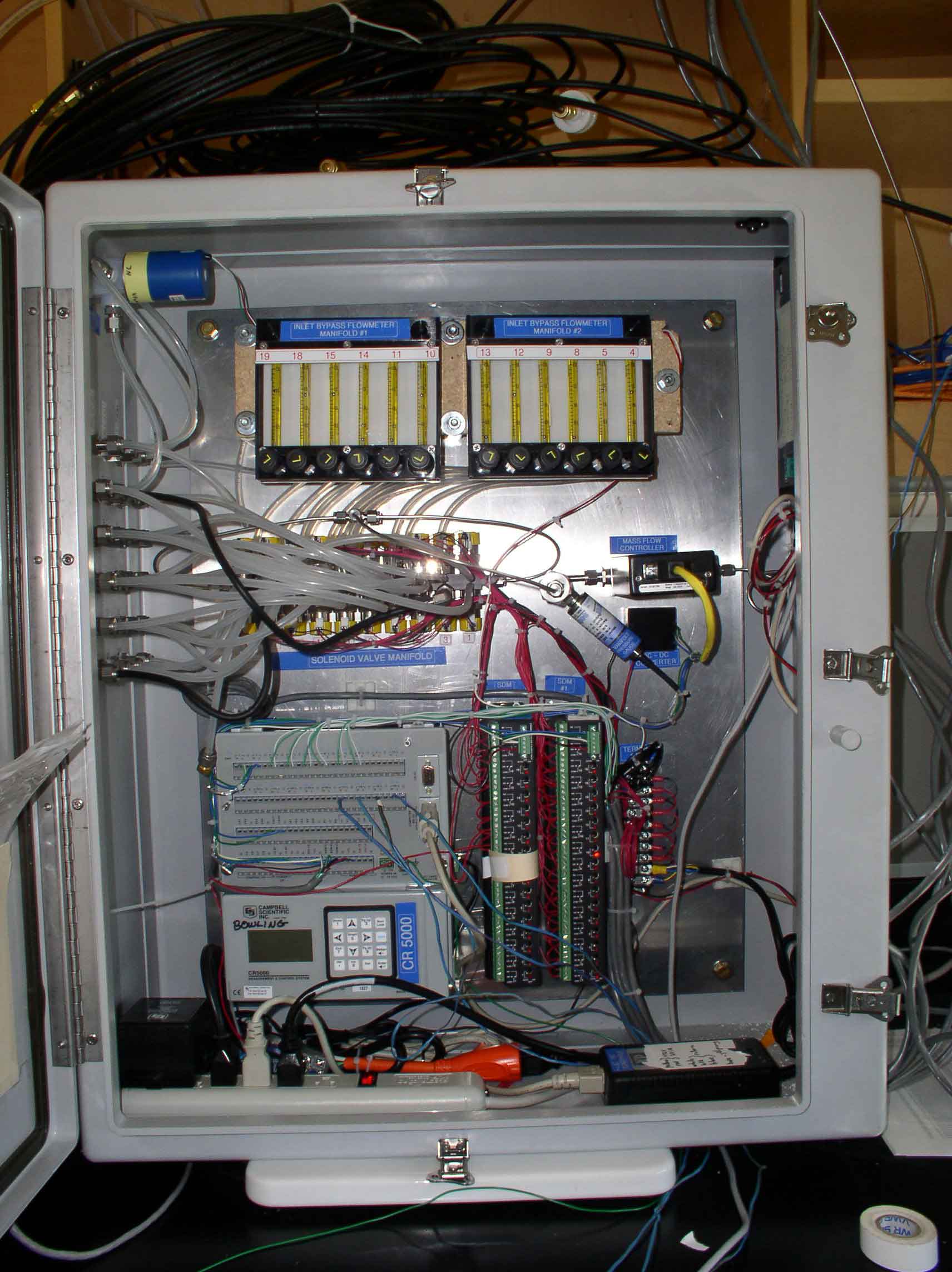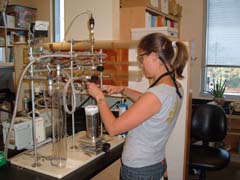
Students and postdocs in the lab use a wide variety of instrumentation and techniques for research, including
Infra-red gas analysis (for measuring CO2 and H2O in air)
Isotope ratio mass spectrometry (stable isotopes of H, C, O, N in many things)
Tunable diode laser absorption spectrometry (stable C and O isotopes in CO2)
Elemental combustion analysis (C, H, N content of plants, soils, etc.)
Gas chromatography (separation of mixtures of gases)
Leaf-level or whole plant gas-exchange (photosynthesis, transpiration, respiration)
Soil chamber gas exchange (respiration, evaporation)
Eddy covariance and other micrometeorological techniques for measuring ecosystem-atmosphere exchange of trace gases such as CO2 and H2O
Atmospheric gas sampling: pumps, flow control, pressure control, valves, flasks, etc.
Preparation techniques for isotope analysis (vacuum lines, cryogen, etc.)
Use of water isotopes to determine plant rooting patterns, water source use, etc.
Plant water potential (pressure bombs)
Soil moisture sensors (time domain reflectometry, thermal dissipation)
Sapflux (Granier and heat ratio methods to measure tree transpiration rate)
Soil CO2 sensors (solid-state infrared absorption)
Weather instrumentation (wind, humidity, temperature, light, rain, etc.)
Solar power and telecommunications for remote sites
Datalogger use and programming
Feet, skis, snowshoes and heavy backpacks
Ecological sampling: biomass analyses, plant productivity, rooting patterns, species composition, soil coring, soil physical analysis, tedious root picking, cow pie sampling, etc.
Physics and math: we embrace these important fields
Coding for data analysis: everybody learns Matlab but some also add R, Python, etc.

We develop (or help to develop) new methods when needed for our research. Some examples include
micrometeorological stable isotope flux measurement techniques
automated flask samplers for remote collection of air
CO2 measurement in small flask samples
tunable diode laser (TDL) spectroscopy
small sample TDL analysis of soil gas

Lab members have full access to SIRFER, a world-class stable isotope facility at the University of Utah. Students and postdocs have ample opportunities to use stable isotopes to address ecological questions in their research, and to get hands-on experience with isotope ratio mass spectrometers and associated peripheral instrumentation.
